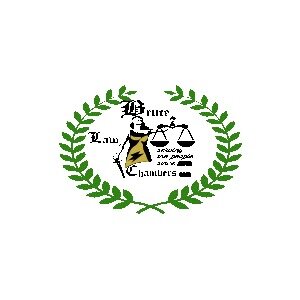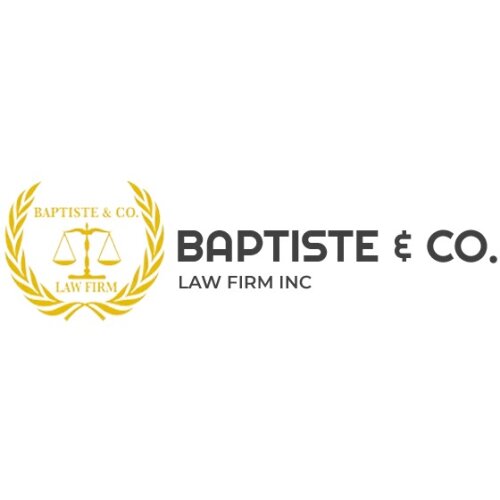Best Banking & Finance Lawyers in Saint Vincent and the Grenadines
Share your needs with us, get contacted by law firms.
Free. Takes 2 min.
Or refine your search by selecting a city:
List of the best lawyers in Saint Vincent and the Grenadines
About Banking & Finance Law in Saint Vincent and the Grenadines
Banking and Finance Law in Saint Vincent and the Grenadines is a crucial component of the country’s legal framework, given the significance of this sector in driving economic growth and development. This field encompasses a wide range of financial matters, from managing public and private finance to regulating financial institutions and transactions. The government and various regulatory bodies ensure that the financial sector operates efficiently and transparently, promoting investor confidence and protecting consumer rights. Additionally, the country serves as an attractive jurisdiction for international banking and finance due to its favorable tax regime and regulatory environment.
Why You May Need a Lawyer
Individuals may require legal assistance in Banking & Finance for several reasons. Some common situations include negotiating and drafting loan agreements, handling disputes with banking or financial institutions, seeking guidance on regulatory compliance, or managing mergers and acquisitions. Businesses may need legal expertise when dealing with complex financial structuring or facing insolvency situations. Moreover, individuals investing or banking internationally may require advice on tax planning and navigating the legal implications of foreign exchange transactions.
Local Laws Overview
The Banking and Finance sector in Saint Vincent and the Grenadines is regulated by several key laws and regulations. The Financial Services Authority (FSA) plays a pivotal role in oversight, ensuring adherence to the International Banking Act, which provides the legal foundation for the establishment and management of international banks. The Proceeds of Crime Act and the Anti-Money Laundering regulations are critical in maintaining the integrity of the financial system. Furthermore, the Companies Act facilitates corporate finance dealings. Understanding these regulatory frameworks is essential for anyone involved in the sector.
Frequently Asked Questions
What types of financial institutions operate in Saint Vincent and the Grenadines?
Financial institutions in the country include commercial banks, international banks, credit unions, and insurance companies.
Is Saint Vincent and the Grenadines a tax haven?
The country is often considered a tax-friendly jurisdiction, especially for international banking, due to its low taxation on offshore activities.
How is the banking sector regulated?
The Financial Services Authority (FSA) is responsible for regulating and supervising the banking sector, ensuring compliance with international standards.
Can foreigners open bank accounts in Saint Vincent and the Grenadines?
Yes, foreigners can open bank accounts, but they must comply with the local Know Your Customer (KYC) regulations and documentation requirements.
What is the legal framework for combating money laundering?
The Proceeds of Crime Act and Anti-Money Laundering regulations form the legal backbone for addressing money laundering activities.
Are there laws on digital and cryptocurrency banking?
While cryptocurrency is not officially regulated, the FSA monitors developments and provides guidance regarding digital assets.
What should I do if I have a dispute with a bank?
Consider seeking legal guidance to explore avenues like mediation or arbitration, or filing a formal complaint with the relevant body.
How does international banking work in Saint Vincent and the Grenadines?
International banking is governed primarily by the International Banking Act, which outlines the licensing and operational requirements for offshore banks.
What are the reporting requirements for financial transactions?
Financial institutions must report large or suspicious transactions under the Anti-Money Laundering legislation to prevent illicit activities.
What documents are needed to secure a business loan?
Typically, you need to provide financial statements, business plans, and collateral documents, subject to the lender's requirements.
Additional Resources
For further information, individuals and businesses can consult the Financial Services Authority (FSA), the Eastern Caribbean Central Bank (ECCB), and the Saint Vincent and the Grenadines Chamber of Industry and Commerce. Additionally, legal practitioners specializing in banking and finance can provide tailored advice and assistance.
Next Steps
If you require legal assistance in Banking & Finance, it is advisable to seek a lawyer specializing in this field. Start by consulting with a local law firm or attorney experienced in banking and financial law. Prepare any relevant documents and a clear explanation of your situation. These professionals can provide you with guidance tailored to your specific needs and ensure compliance with the financial regulations of Saint Vincent and the Grenadines.
Lawzana helps you find the best lawyers and law firms in Saint Vincent and the Grenadines through a curated and pre-screened list of qualified legal professionals. Our platform offers rankings and detailed profiles of attorneys and law firms, allowing you to compare based on practice areas, including Banking & Finance, experience, and client feedback.
Each profile includes a description of the firm's areas of practice, client reviews, team members and partners, year of establishment, spoken languages, office locations, contact information, social media presence, and any published articles or resources. Most firms on our platform speak English and are experienced in both local and international legal matters.
Get a quote from top-rated law firms in Saint Vincent and the Grenadines — quickly, securely, and without unnecessary hassle.
Disclaimer:
The information provided on this page is for general informational purposes only and does not constitute legal advice. While we strive to ensure the accuracy and relevance of the content, legal information may change over time, and interpretations of the law can vary. You should always consult with a qualified legal professional for advice specific to your situation.
We disclaim all liability for actions taken or not taken based on the content of this page. If you believe any information is incorrect or outdated, please contact us, and we will review and update it where appropriate.
Browse banking & finance law firms by service in Saint Vincent and the Grenadines
Saint Vincent and the Grenadines Attorneys in related practice areas.
Browse banking & finance law firms by city in Saint Vincent and the Grenadines
Refine your search by selecting a city.











